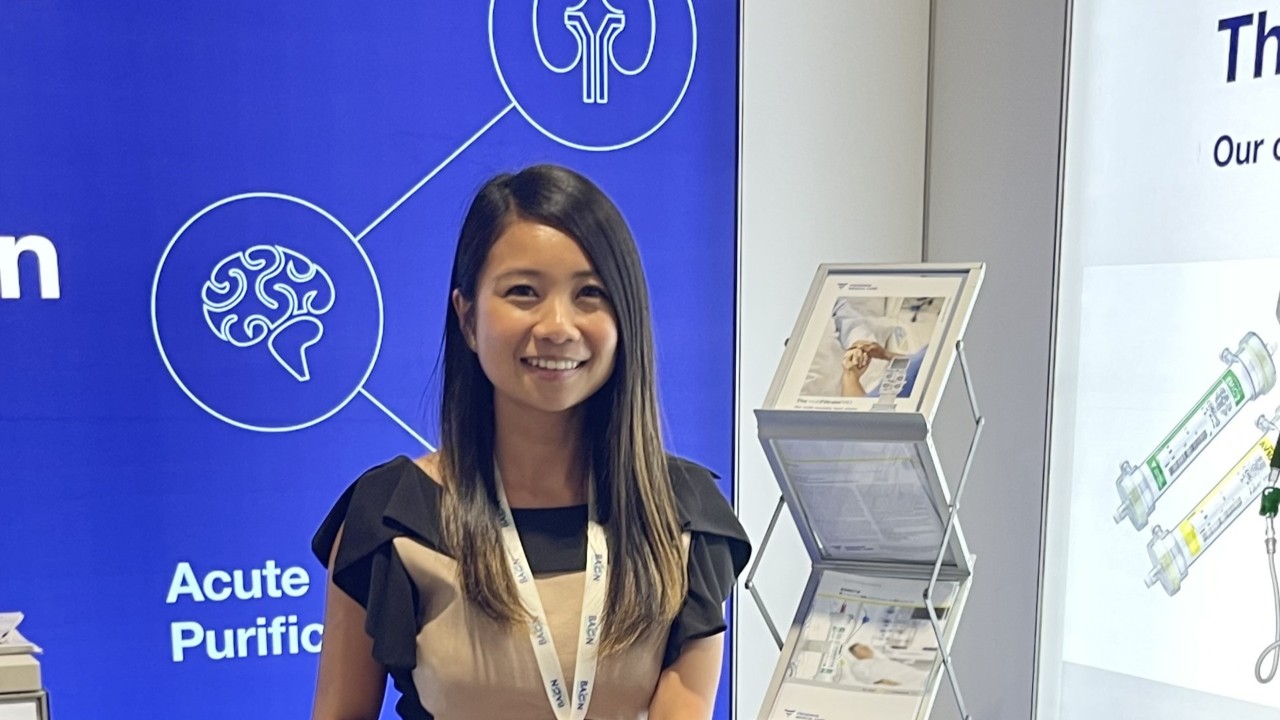“In critical care nursing, you can really use your skills to make a difference – that’s why I love it”
Erika’s journey into renal care is rooted in a deep passion for healing and a relentless pursuit of growth.
Her story began in the Philippines, where she launched her nursing career as a critical care nurse in a local hospital. There, Erika gained immense hands-on experience in caring for the most vulnerable of patients, developing the technical and personal skillsets needed to excel in a life of care.
Erika immediately knew that she had found one of the great passions of her life. Directly caring for those most needing of support by honing her technical expertise, and building relationships with those under her responsibility, came to form her purpose.
Whilst Erika found this work immensely satisfying, it had its drawbacks; she was regularly required to work shifts of up to 72 hours with little time to rest – not the healthy balance that Erika knew would encourage her best work.
Looking to continue her critical care career in a different environment, Erika began exploring opportunities beyond her home country. Driven by a desire to grow both professionally and personally, she set her sights abroad and in 2013, she made the life-changing decision to move to the UK. Arriving with determination and a wealth of experience, Erika joined the NHS. She thrived in this new environment and in time, her hard work and natural leadership were recognised, and she rose to the role of Sister – taking on greater responsibility and guiding others with the same compassion and steadiness that had defined her journey from the very beginning.
Despite her rapid progression, Erika was ambitious for more. Senior roles in the hospital she worked at would have eventually involved high amounts of administrative and managerial responsibilities – separating her from the care process that gave her so much fulfilment and purpose. Erika resorted to working extra clinical shifts at the hospital on her day off, which helped to reconnect her to her passion, but she recognised that this was not a permanent solution.
It was at this point that she came across Fresenius Medical Care, who offered her a clinical educator role within the critical care team. Recognising that this was a way for her to progress whilst still having a direct impact on day-to-day care, Erika eagerly accepted the new opportunity in 2019.
As an added bonus, Erika found that she had already had a great deal of experience with Fresenius Medical Care’s dialysis devices whilst in her previous nursing roles! This experience, coupled with her immensely motivated and dedicated attitude, allowed Erika to progress quickly at FME, and she was made Lead Therapy Specialist Nurse for the UK’s entire critical care team in just a few years – a role she still holds now.
Erika is responsible for training FME’s team of critical care specialists, ensuring that they have the knowledge, aptitude, and confidence to provide the high level of care that is expected from them. Despite the fact that critical care shifts are now no longer part of her role, Erika still feels extremely connected to that part of her work.
It is also part of Erika’s role to inspire her team to embrace the challenges and possibilities of critical care with the same attitude that she did when she was in their shoes. “I’d like to say that I lead, rather than manage”, Erika describes.
This role has also allowed Erika to explore new challenges. She now has to be an effective leader and communicator to the team she is training. “You will be teaching to a variety of different audiences, and will have to adapt your content and style to match their unique needs and skills” she describes. “Empathetic but strategic thinking is essential for this.”
As Erika’s role has evolved, she is now not just in charge of caring for a ward– she’s also partially responsible for the wider FME ecosystem of those with CKD, healthcare providers, and product development teams. Her strategic thinking skills are being applied in new environments, as she considers how FME UK can best navigate through the changing healthcare landscape and continue to apply top-quality critical care.
When asked about the developments she has witnessed over her 16-year nursing career, two things stand out to Erika. The first has been healthcare’s gradual transition to a paperless system, as the sector seeks to embrace sustainability and efficiency – leading to entirely new ways of storing and interacting with treatment data. The second has been the almost revolutionary development in data and technology that has emerged in recent years.
Erika describes how a high number of the various machines that operate on critical care wards are now compatible with each other, seamlessly sharing relevant data to ensure high-quality monitoring and decision-making can be made at all times.
Looking to the not-so-distant future, Erika describes how technology is already revolutionising the way critical care nursing can be taught. FME UK is working on developing further augmented reality (AR) training for care staff, allowing trainee nurses to practice virtually ‘setting up’ and using equipment from a different location.
“I can teach people even when we can’t be face to face”, Erika describes. “It’s very cool”.
Whatever future changes continue to take place in the renal sector, we can be sure of one thing: with dedicated, talented, and forward-thinking team members such as Erika, the future of renal care is bright.
